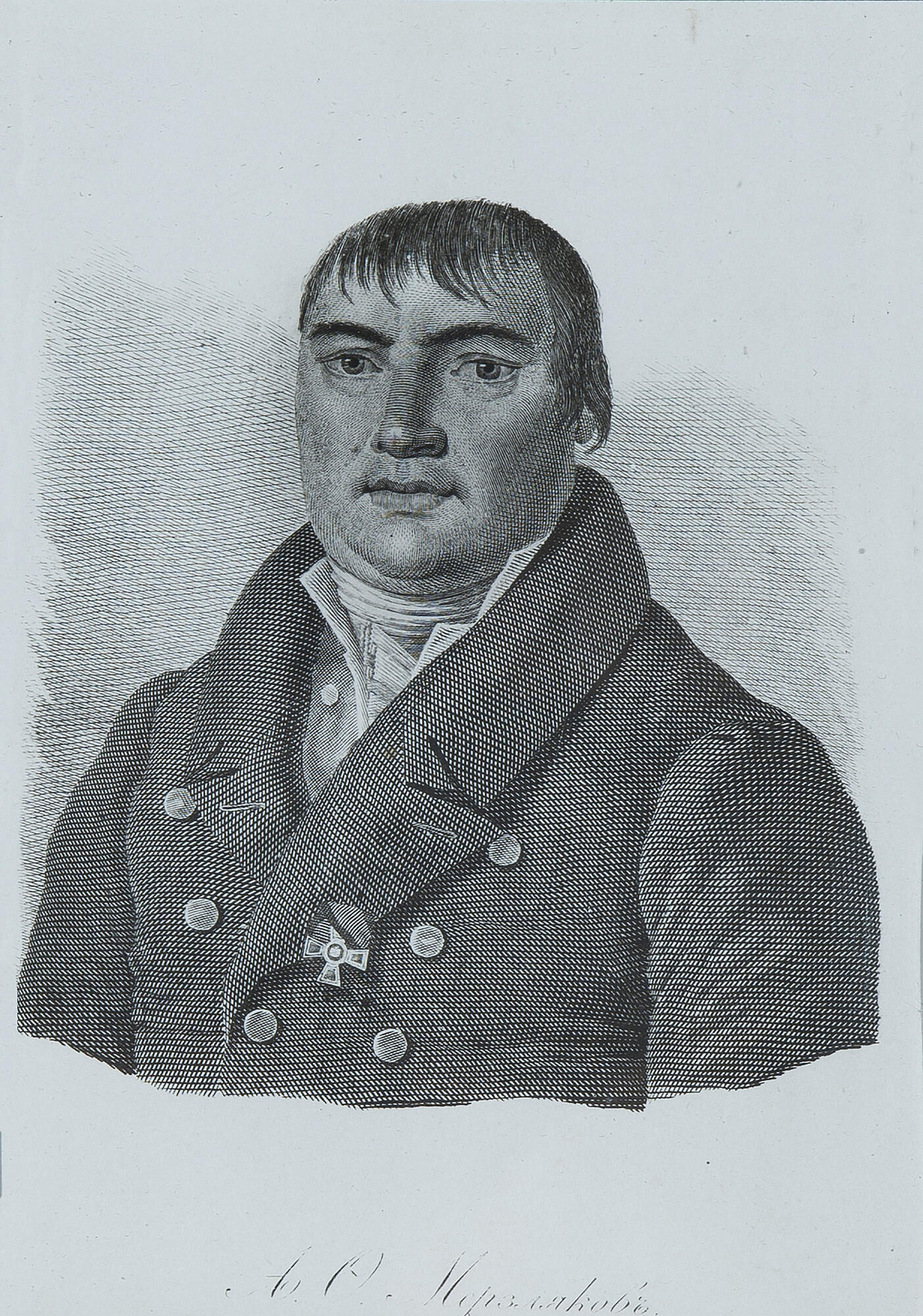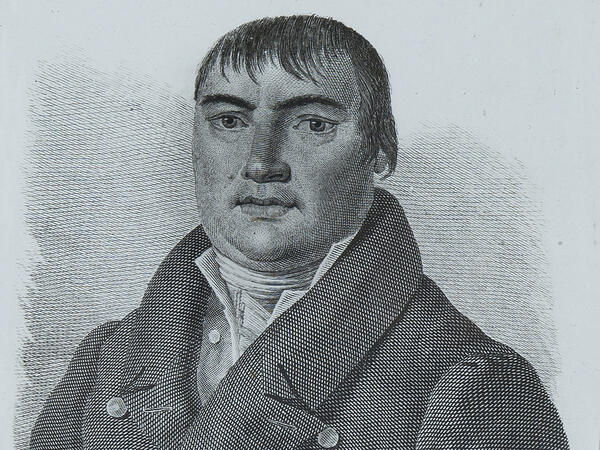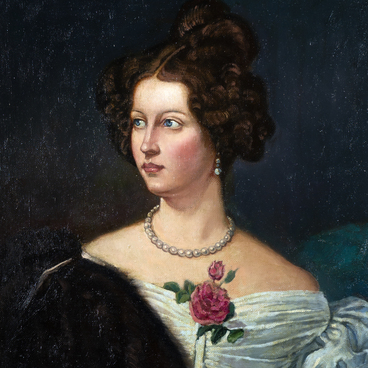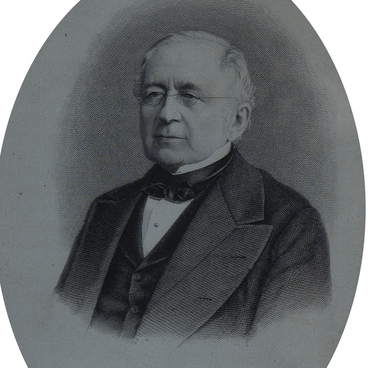Aleksey Merzlyakov was a poet, literary critic, translator, and professor at Moscow University. Being one of Fyodor Tyutchev’s teachers, he highly appreciated the poetic talent of his student. Merzlyakov was born in 1778 into a poor merchant family and went to public school in Perm. One of his most famous early works “Ode to the Conclusion of Peace with Sweden” was published in the “Russian magazine”. His literary success enabled Merzlyakov to transfer to the Moscow University gymnasium, and in 1799, he graduated from Moscow University with a gold medal. From 1804 to 1830, he taught at the Department of Russian Eloquence and Poetry, and also worked as a censor at the Moscow Censorship Committee.
Merzlyakov’s writing can be attributed to the influence of Vasily Zhukovsky and Alexander Turgenev. It was also affected by his participation in the ‘Friendly Literary Society’, where he became acquainted with the ideals of citizenship and nationality. His works ‘Ode to the Fall of Babylon’, the hymn ‘Glory’, translations from the Greek poet Tyrtaeus influenced the development of Russian civil poetry before the Decembrist Revolt.
In collaboration with the serf Daniil Kashin, who composed music, Merzlyakov wrote several songs based on folk motives (‘In the broad valley…’, ‘Not a curly linden tree…’, ‘Black-browed black-eyed …’). They are still popular nowadays. Merzlyakov’s songs, poems and translations were a significant contribution to the democratization of Russian literature.
In 1815, Merzlyakov started the “Amphion” magazine, where he published the works of Vasily Zhukovsky, Konstantin Batyushkov, Pyotr Vyazemsky and Denis Davydov. He himself made numerous translations of Greek and Roman poets, and was also a prominent art critic and theorist. He developed his ideas in the university courses “The Theory of Fine Arts” and “Critics”. These lectures were popular among the students.
Merzlyakov also taught at the Noble Boarding School at Moscow University, where Fyodor Tyutchev and other aspiring poets were among the students. For example, he was believed to have a strong influence on the worldview of Mikhail Lermontov. Merzlyakov also became one of the first poets to recognize Tyutchev’s poetic talent. Being a founder of the Society of Lovers of Russian Literature at Moscow University, Merzlyakov helped the 14-year-old Fyodor Tyutchev to become its member.
Merzlyakov’s writing can be attributed to the influence of Vasily Zhukovsky and Alexander Turgenev. It was also affected by his participation in the ‘Friendly Literary Society’, where he became acquainted with the ideals of citizenship and nationality. His works ‘Ode to the Fall of Babylon’, the hymn ‘Glory’, translations from the Greek poet Tyrtaeus influenced the development of Russian civil poetry before the Decembrist Revolt.
In collaboration with the serf Daniil Kashin, who composed music, Merzlyakov wrote several songs based on folk motives (‘In the broad valley…’, ‘Not a curly linden tree…’, ‘Black-browed black-eyed …’). They are still popular nowadays. Merzlyakov’s songs, poems and translations were a significant contribution to the democratization of Russian literature.
In 1815, Merzlyakov started the “Amphion” magazine, where he published the works of Vasily Zhukovsky, Konstantin Batyushkov, Pyotr Vyazemsky and Denis Davydov. He himself made numerous translations of Greek and Roman poets, and was also a prominent art critic and theorist. He developed his ideas in the university courses “The Theory of Fine Arts” and “Critics”. These lectures were popular among the students.
Merzlyakov also taught at the Noble Boarding School at Moscow University, where Fyodor Tyutchev and other aspiring poets were among the students. For example, he was believed to have a strong influence on the worldview of Mikhail Lermontov. Merzlyakov also became one of the first poets to recognize Tyutchev’s poetic talent. Being a founder of the Society of Lovers of Russian Literature at Moscow University, Merzlyakov helped the 14-year-old Fyodor Tyutchev to become its member.



